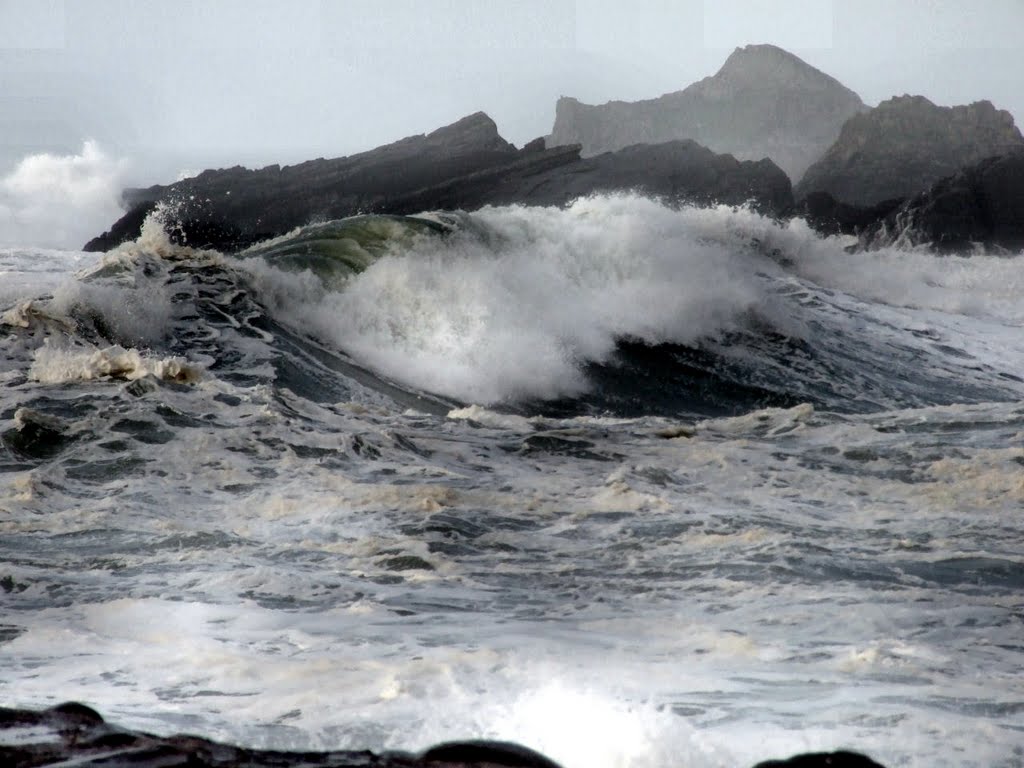Last week our Bishop sent me to North Carolina
to attend a conference that happens every two years in the Episcopal Church, a
gathering of clergy and lay people from all over the country who are engaged in
Latino ministry, or who want to be. A fair number of the participants are
first-generation Americans, with limited English, so a lot of the sermons and
addresses and workshops, and almost all the songs, were in Spanish. There was simultaneous translation available,
but I chose not to use it. There were
two reasons for this. The first was that
I saw an opportunity to practice my Spanish.
There were some speakers, who, when they really got wound up, left me
hopelessly in the dust, and a lot of jokes I didn’t get, but I was pleased with
how much I was able to participate in Spanish, and I got better at it as the
conference went on.
The second reason why I decided not to use
the translation equipment was that I wanted to have an experience that is an
everyday reality for many people, but almost never happens to me. What with my sex, and the color of my eyes
and skin, and my native language, socio-economic status, and level of education,
and my degree of physical and mental ability, I have the privilege of access
almost everywhere I go. I feel like I
belong. And that is nowhere more true
than in the church. “The Episcopal
Church Welcomes You” is a slogan that I know, without question, applies to
me. But sitting in the auditorium at
that conference, where I was in the minority ethnic group, trying to sing a
song I didn’t know, or get the gist of a speech in a language I didn’t
completely understand, gave me just a little taste of what it is like to be a
cultural outsider, an “other.”
At the celebration of the Holy Eucharist on
Wednesday afternoon I somehow ended up in the front row of the auditorium. After the sermon it was announced that there
would be laying on of hands and prayer for those with particular needs or
concerns. And sure enough, eight or so
of the Latino and Latina priests in albs and stoles took positions up on the
stage or in the space right in front of the first row of seats, and the people
started lining up. My immediate thought
was that I didn’t have anything going on in my life that was serious enough to
require special prayer. I thought of the
other people in that audience, and I imagined what they must deal with in terms
of poverty, or separation from their families, doubtful immigration status, or
serious disease, and I thought that they surely needed prayer more than I
did.
So I decided to sit and pray quietly to
myself. And I prayed for peace in the
places in the world where there are wars and political turmoil. And I prayed for people in this congregation
and others that I know who are suffering or struggling in different ways. But I also had a front row seat for the
action that was going on around me, and my eyes kept straying upward to watch
the people with their heads bowed, and the priests holding them in their hands
and leaning in with their eyes closed, whispering their prayers, and I saw the hugs
that sometimes followed after the prayers were said, and the tears. After a few minutes I noticed that that, if
there was some kind of expectation that you had to have really serious problems
in order to go up for a prayer, people were either ignoring that requirement or
else this was a group that was really hurting because the lines down the middle
of the auditorium and in the side aisles were getting longer, not shorter.
Well, I
began to wonder whether maybe I should reconsider my decision not to join them,
but I also started to worry about the time.
This Eucharist was supposed to end at 4:15 and I’d made plans to go for
a run and a swim in the lake before dinner at 6:00 and some of these priests
were really taking a long time with their prayers, and if I got into line, then
everybody might as well do it and we’d
never get out of there on time. So I
straightened up in my seat and closed my eyes and returned to my private
prayer, and after a while I began to pray for members of my own family, for my
crazy old uncle living by himself way up on the North Coast, and another uncle
with cancer, and then I thought of my brother.
I started to pray for my brother who has a drug problem, and is
unemployed, and has never really done much with his exceptional talents, but is
just kind of stuck in a perpetual adolescence, and of all the shame and
self-hatred I know he carries, and the sorrow and worry it causes my parents
and I started to feel really, really sad, and I recognized that I did have
something I needed prayer for.
But by then there were just a few people left
in line, and the others had gone back to their seats, and the priests had
started to turn and lay hands on each other, and I wasn’t sure which one to go
to, and I didn’t want to be stupid and rude, like “hey, I know we’re almost
finished, but I changed my mind.” And I
wasn’t sure that I wouldn’t start crying if I started talking to a priest about my brother right then, and then I would
have to walk back to my seat with everybody in the auditorium watching me. And the thing was, that room was filled with a
spirit of kindness and compassion in that moment and I’m sure that whatever I
did no one was going to judge me, and it would have been okay.
But I never did go up for a prayer, because I
was afraid to be vulnerable. I was so
attached to the idea of being better off than those people that I couldn’t see my
own need for healing, or that those “others” were offering it to me. “The Episcopal Church Welcomes You,” is a
slogan I can get behind as long as I’m the one doing the welcoming; but let me
be the stranger in need of welcome, and I hesitate and am afraid, standing
outside wondering if it’s safe to go in.
In today’s gospel reading Peter and Jesus
have a fight, because Peter thinks that whatever it means that Jesus is the
Messiah, the Son of God, it doesn’t involve being vulnerable. But Jesus sees it differently. He knows that the world that human beings
have made is one where people quite easily and almost without thinking assume
that some were meant to rule and others to be ruled, some to possess and other
to be dispossessed, some to enjoy the blessings of prosperity and peace, and others
to live and die in misery and violence, as if all of this were quite natural,
even willed by God. But Jesus sees God
taking a place in this world with the poor, with those who mourn, those who
hunger and thirst for justice, who suffer persecution for the cause of peace
and for the truth. So the Messiah will
make the journey the holy city of Jerusalem as a vulnerable stranger, an outsider,
one whose right to be there is in doubt, whose fate is in his enemies’ hands.
It wasn’t hard to predict what would happen
to him there. He would suffer and be
killed, as prophets and martyrs have suffered and been killed again and again
before Jesus and ever since. What
happened was business as usual, entirely ordinary except for one thing—on the
third day Jesus rose from the dead, and his disciples were witnesses of it. And that one thing is what makes all the
difference. It is what makes the cross not
a place where God’s voice in the world is silenced once again, but where God’s
truth speaks most clearly. It is where
we see the world as God sees it—where God dispels the illusions of human
privilege and power, and drags hypocritical religion and rationalized barbarity
out of the shadows. The cross is where
God lights up the whole of human life, even at its most treacherous and cruel,
its most abused and degraded, with the eternal glory of the Son of Man—his compassion,
his forgiveness, his wisdom and love.
The cross is where we learn to follow Christ
on a journey of healing and being healed, welcoming and being welcomed, that reaches
across every barrier of culture, class, language, sex and sexual orientation, race
and religion, to touch God in the hand of the other, and where we learn to say “
hermano”, “hermana”-- “brother”, “sister”.



